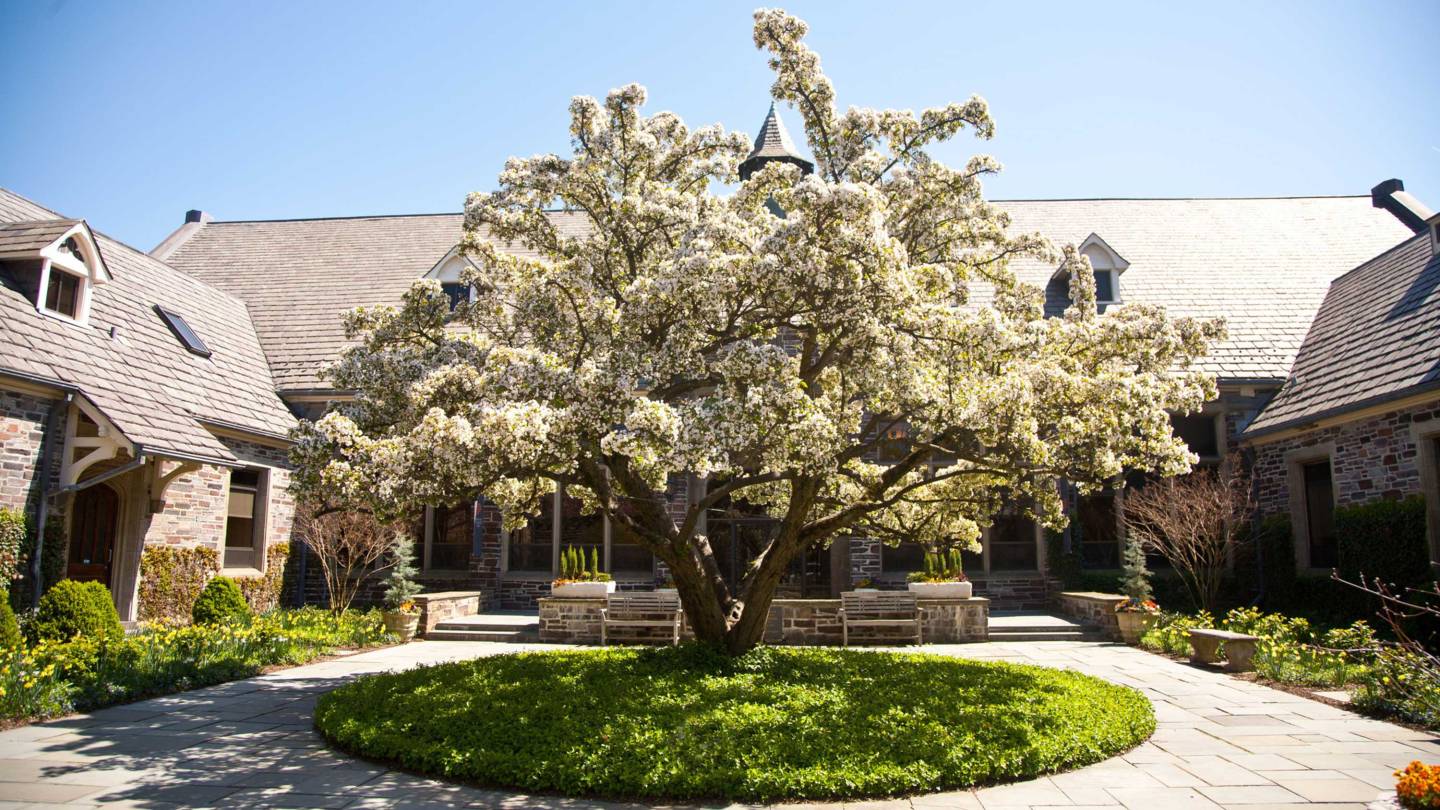Princeton is improving mental health resources, building on a long-term commitment to student well-being
Princeton has begun implementing improvements to its mental health and wellness resources, as recommended by a summer task force comprised of leaders from campus life, health services and the student government.
The expansion of mental health resources includes:
- Counseling and Psychology Services (CPS) will hire the equivalent of two new full-time counselors to increase access to mental health care on campus.
- The CPS Cares line will launch on November 21 to provide students with 24/7 access to a counselor over the phone. CPS will continue to provide same-day in-person services through urgent care for students who prefer to meet with a counselor in person.
- CPS will offer extended initial consultations so that students can meet more of their needs during their first appointment. This change will take effect at the end of the semester.
Vice President for Campus Life W. Rochelle Calhoun said the University’s goal is to support student well-being in a comprehensive, holistic and inclusive manner. She said part of that work is cultivating stronger bonds between groups across campus with events like the recent Community of Care breakfast for students, faculty and staff.
“We continually review our programs and assess where new approaches or services may be needed,” Calhoun said.
Last summer, representatives from the Office of the Vice President for Campus Life (VPCL) and University Health Services (UHS) worked with the Undergraduate Student Government to review current mental health resources and explore ways to improve access to and awareness of mental health resources on campus and beyond.
Other recommendations from the Student-Staff Task Force are underway, including further improvements to CPS services and staff, funding for transportation to off-campus mental health services, and improving mental health resources and crisis intervention based in residential colleges.
These actions build on more than a decade of work to expand mental health and wellness programs, services, staff, and funding to support undergraduate and graduate students. Resources are offered by UHS, VPCL, Office of the Dean of Undergraduates, Graduate School, Office of Religious Life, residential colleges, and many other departments.
“At Princeton, we aspire to ensure that a health and wellness mindset is embedded in everything we do so that our students continue to reach their potential and thrive,” said the Executive Director of University Health Services, John Kolligian. “We have made progress and there is still a long way to go before we can achieve our goals as a health-promoting university.”
As colleges and universities across the country experience an increase in the number of students seeking mental health care in the wake of the COVID-19 pandemic, Princeton has also worked to improve its support systems for students. undergraduate and graduate.
“Research has shown that the mental health of everyone, and especially young adults, has deteriorated significantly as a result of the pandemic,” said CPS director Calvin Chin. “My colleagues at other Ivy institutions are managing increases in demand similar to what we are seeing at Princeton.”
Chin said the CPS has increased its membership in recent years, even before the pandemic, and has launched several initiatives to increase access to mental health services, including funding the University to help students pay for mental health treatment.
Previous advisory resource enhancements include:
- The creation of the Exclusive Provider Network, made up of over 200 community therapists who accept the student health plan and charge students a $20 co-pay with no deductible, to increase access for students who needed ongoing treatment.
- The creation of TigerWell Outreach Counselors, who provide walk-in counseling services on campus, making it easier for students to connect with counselors outside of McCosh Health Center.
University Health Services also offers a range of educational and support programs through its Health Promotion and Prevention Services, including the UMatter Witness Intervention Program, Peer Health Counselors, and the TigerWell Initiative. . TigerWell engages staff, faculty, undergraduate and graduate student partners in promoting proactive and innovative approaches to health and wellness.
“We want to support our students in all aspects of their lives,” President Christopher L. Eisgruber said in a recent interview with the Daily Princetonian about mental health and other topics.
Eisgruber said there are many programs and staff members focused on supporting students as they face personal challenges and difficult events. He also noted, “We have all felt deeply the losses that have occurred on this campus over the past year. One of the strengths we have as a campus is our ability to respond personally and collectively to these losses.
The University has many staff members that students can turn to for help. This fall, the first cohort of Residential Life Coordinators (RLCs) moved into residential colleges to support and promote the health, safety and well-being of students at each residential college. Reporting to the Assistant Deans for Student Life and working with Boarding School Counselors, RLCs are readily available to respond to crises and emergencies.
“Princeton is blessed to surround its students with literally, many caring adult personalities – teachers, chaplains, coaches, residential life staff, administrators of all kinds,” said Reverend Alison Boden, Dean of Religious Life and the chapel. . “Compared to the general youth population, we actually have tremendous support. It doesn’t mean our students are less at risk for mental health issues, but it does mean we’re better prepared to help them.
Other mental health and wellness resources include, but are not limited to:
In addition to campus resources for students, faculty and staff who need support can speak to independent counselors by calling Carebridge at 800-437-0911 or scheduling in-person counseling online at the Wellness Center employees at 350 Alexander Street.


Comments are closed.